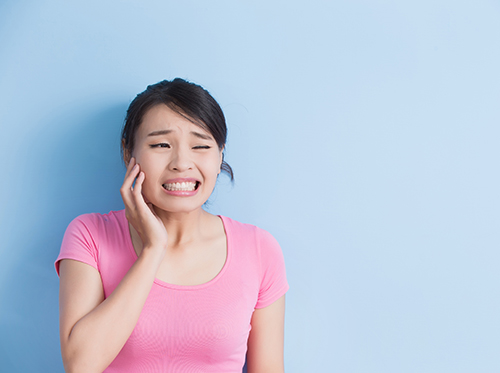Dentin Tooth Sensitivity Treatments
October 16th, 2019

Dentine hypersensitivity can be described as a sharp and sudden pain caused by cold food and beverages. It’s present in more than half the population and result from receding gums that expose the root surfaces of your teeth.
That being said, hypersensitivity can be triggered by forceful tooth brushing, teeth whitening products, gum disease, and erosion from acid reflux, bulimia, or highly acidic foods. Symptoms can range from moderate to severe, depending on the cause and how quickly it’s treated.
Tooth sensitivity begins when the dentin develops some exposure. This layer that surrounds the nerve of the tooth is usually covered by gum tissue, but when recession takes place, the dentin can get exposed and the pain begins. The dentin contains numerous pores that run from the surface of the tooth inward. This direct connection to the nerve and blood supply of the tooth can be affected by external stimuli, such as the triggers cited above.
The good news is there are several different ways to treat dentinal hypersensitivity at Henagan Team Dentistry.
Treatment of dentin tooth sensitivity begins by making an appointment with Dr. Henagan. We encourage you to begin treatment sooner rather than later in order to figure out the cause and to reduce the pain you’re experiencing. In most cases, quick treatment options will solve the problem, including the use of desensitizing toothpaste, switching to a soft-bristled toothbrush, starting a daily fluoride rinse treatment, or minimizing teeth grinding with the help of a custom mouthguard.
For more serious cases, we may recommend you get crowns put on problematic teeth, start a gel or varnish fluoride treatment, or even schedule a surgical gum graft or root canal, depending on the cause and severity of your pain.
If you’re concerned about any tooth sensitivity you’re experiencing, please give our New Iberia, LA office a call and schedule an appointment. Dr. Henagan and our team want to help you identify the cause of your pain, and give you the best possible treatment plan. We look forward to seeing you to help alleviate discomfort and solve your tooth sensitivity.




